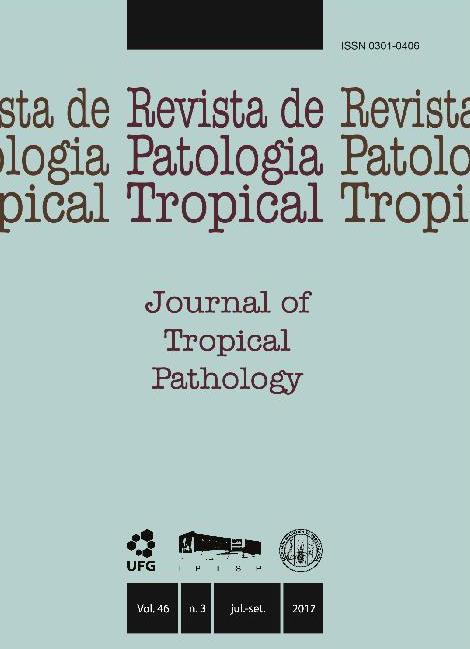SEPSIS-INDUCED ACUTE KIDNEY INJURY: BIOMARKERS FOR DIAGNOSIS
DOI:
https://doi.org/10.5216/rpt.v46i3.49681Palavras-chave:
Sepsis, acute kidney injury, diagnostic biomarkers.Resumo
Sepsis is a major global health problem leading to the increased incidence of death in intensive care units. In recent years, despite technological advances, the number of cases has grown significantly. Among the main complications presented by septic patients, acute renal dysfunction is largely responsible for the high mortality rate. Initially, the reduction of renal function is associated with focal tubular injury with preserved glomerular morphology and systemic hemodynamic alterations. During sepsis development, the progressive decrease
in urinary volume and reduction of the glomerular filtration rate associated with increased serum levels of urea and creatinine are considered classic markers of severe kidney injury.
Despite the valuable role of these serum markers regarding renal function, these data provide an incomplete scenario of the patient, since many renal disorders may occur in individuals with increased plasma concentrations of urea and creatinine. Taking into account the important role of systemic inflammatory processes in the development of acute kidney injury induced by sepsis, the search for new markers presenting high sensitivity and specificity capable of
detecting early renal injury is still necessary. Thus, the present review summarizes important aspects of pathophysiology of acute kidney dysfunction induced by sepsis and presents an updated view of possible new biomarkers associated with the development of acute kidney injury. Understanding these markers allows important advances leading to new therapeutic approaches, indicating a new horizon in the diagnosis and treatment of acute kidney injury in
sepsis.
Downloads
Downloads
Publicado
Como Citar
Edição
Seção
Licença
The manuscript submission must be accompanied by a letter signed by all authors stating their full name and email address, confirming that the manuscript or part of it has not been published or is under consideration for publication elsewhere, and agreeing to transfer copyright in all media and formats for Journal of Tropical Pathology.

